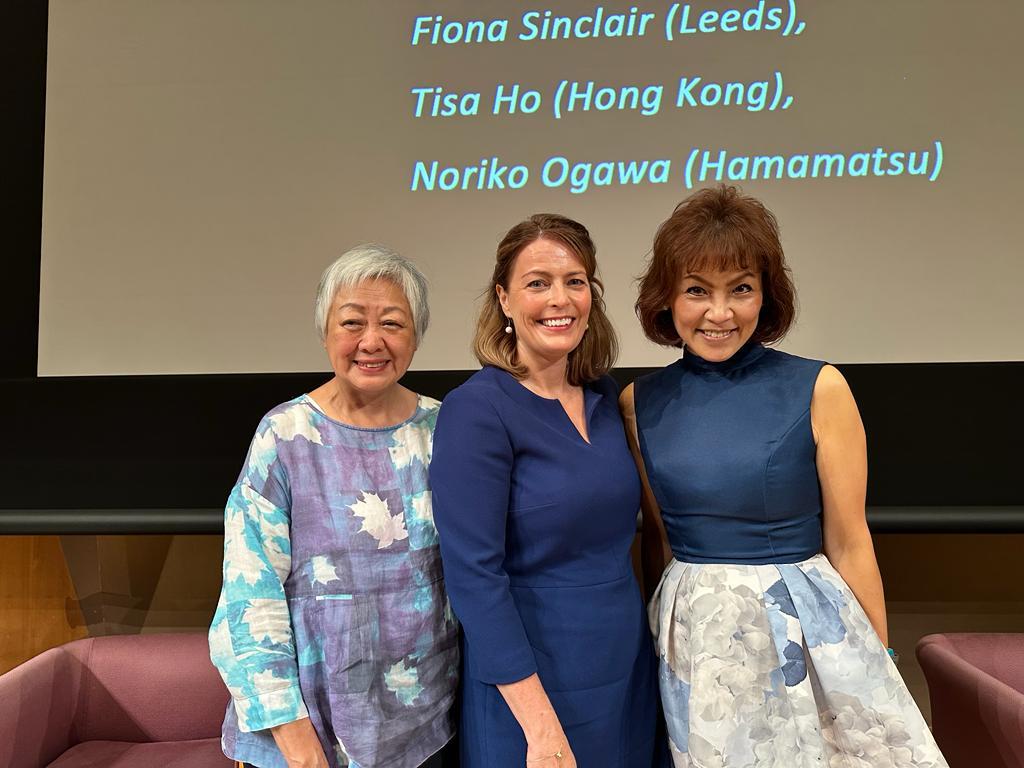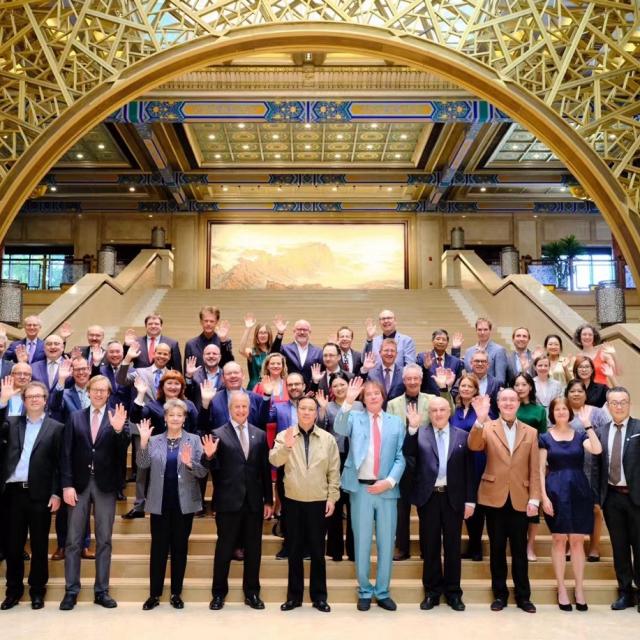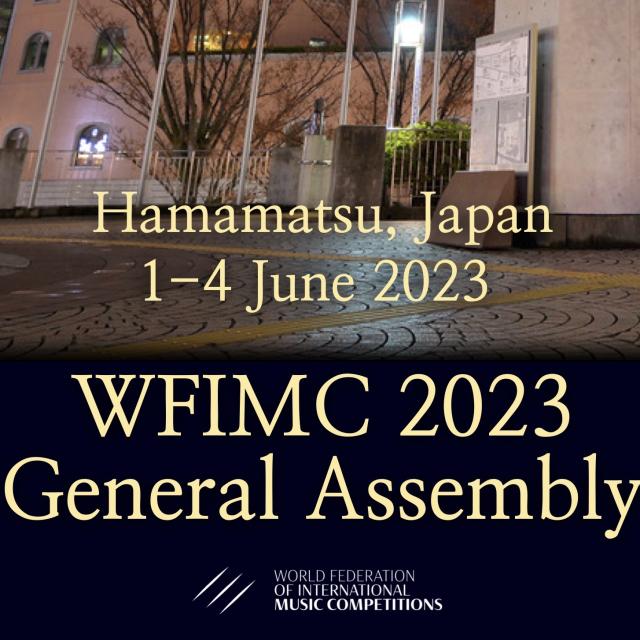Our jury only listens to the music

Gender Equality and Privilege in a Changing World
by Fiona Sinclair
As a country with a long history of gender disparity, Japan provided a particularly meaningful setting for this discussion with the delegates of the 2023 Congress. The inspirational Noriko Ogawa and Tisa Ho explored this topic with me at the first session to introduce the theme of Equality, Diversity and Inclusion (EDI) at the World Federation.
Following an all-male final at Leeds in 2021, I’ve been on a mission to understand why so many piano competitions end up with male winners. It was about a year ago when my own research led me to the work of Prof. Karol J. Borowiecki (University of Southern Denmark), Roberto Asmat (Universidad Pública de Navarre), and Prof. Marc T. Law (University of Vermont). They reviewed data from the Alink Argerich Foundation’s periodicals up to 2000 and have identified a sizable gender gap in piano competitions. They are now seeking to understand why this occurs and what can be done about it through further research.
To put this into context, my team in Leeds wanted to gather some current data about the ‘talent pipeline’ – the pathway that takes musicians through their education, sees them come through our competitions and then establish careers in the music industry.
We investigated the educational starting points of pianists in the UK. Piano specialisation at secondary school showed equal participation between boys and girls. In ABRSM piano exams, the number of girls slightly increased, and in 2022, 59% of piano admissions into UK conservatoires were women. We then reviewed 20 major piano competitions held in 2022. A huge disparity emerged with only 3 women winners and 8 competitions featuring all-male finalists.
This gender gap continued when looking at those who are sustaining performance careers. Only 22.5% of women pianists are represented in the International Artist Managers Association's roster, with similar numbers seen in recording artists with major labels.
So put that all together and you have a scissors diagram which highlights a disconnect between women studying piano up to a high level and their subsequent lack of major prize wins and long-term career sustainability. These statistics reflect a gender disparity that is not exclusive to classical music but runs through the entire music industry, including all genres, composition, singer-songwriting, and industry awards. Indeed, this phenomenon is not unique to the music industry but is observed in various fields where elite achievement and recognition rely on a specific pipeline eg academia, tech, finance etc.
The orchestra sector, which has been on a decades-long journey of EDI, offers us valuable insights into the structural inequalities that create disadvantage and effective solutions. It is crucial to acknowledge the importance of representation – women modelling success to the next generation - and challenge the prevailing notion that success and failure are solely determined by talent and hard work, overlooking the influence of privilege and status.
During our conversations in Japan, I was told many times that ‘our jury only listens to the music.’ Yet we must recognise the bias that plays out in competitive situations, where strong opinions from a limited pool of familiar figures with extraordinary influence abound. Bias exists in every one of us and you can only eliminate it by bringing attention to it. By averting our gaze on the issue of bias, we cloud the harsh reality that the playing field IS uneven, our networks are limited, and society is riddled with systems that count against women in every walk of life.
And as my violin competition colleagues were very quick to point out, the opposite is true in their discipline, where finalists and winners are overwhelmingly women (sadly, they also suffer accusations of bias!). We can assume that female violinists and pianists work equally hard, are afflicted equally by imposter syndrome or suffer a loss of confidence when they have a set-back, and that male violinists are just as persistent as male pianists. So what is different in the piano world?
The World Federation is the perfect place for this dialogue to happen. To foster change, it is crucial to gather more comprehensive data on the career pipeline, including the progression of women after conservatoire studies and competition wins. This research should extend to different cultures and parts of the world to identify patterns and address broader issues of diversity, since the concept of EDI is very different around the world. Initiating conversations with stakeholders, artists, teachers, and conservatoires is vital, as collective action is necessary for progress, and this is something we can all do.
The lack of gender balance on juries, in repertoire and in even our marketing all send a strong message that women are not equally valued and makes us look out of step with society. Women already suffer from highly sexualized marketing and endure body-shaming in the mass media, which can discourage women from pursuing public careers. Addressing these challenges is not only essential for the growth and relevance of competitions but also for inspiring and connecting with younger generations of audiences.
Moreover, donors, stakeholders, and partners now have heightened expectations that intentional emphasis on EDI is an integral aspect of the relationship. In the UK, publicly funded arts organisations must meet these expectations, and are committed to cultivating a broader range of artists who can authentically engage with an increasingly diverse audience, both in person and online.
Implementing data collection and using facts to inform juries, boards, and decision-making processes is a crucial step. Additionally, emphasizing the importance of eliminating biases and providing support and encouragement to women competitors can help them navigate the uneven playing field – a recommendation of the Danish-led research team. Collaboration, research, and a commitment to diversity and inclusion will benefit the entire music industry.
By perpetuating a sector dominated predominantly by male awards, we inadvertently shape women's perceptions of the value of piano competitions and their standing in the music industry as a whole. This problem will resonate in other competitions with highly gendered instruments. And of course, gender is no longer binary. Increased diversity can create a more inclusive, creative and vibrant landscape for all, cultivating role models for the next generation. This conversation marks the beginning of a journey towards a heightened awareness within our community and seeking collective solutions that can genuinely effect change. By working together, we can ensure we do not let the voices of unique musicians go unheard.
Further reading:
https://americanorchestras.org/learn/equity-diversity-and-inclusion/
Competing for Equality: The Gender Gap in Piano Competitions since 1890
©WFIMC 2003





